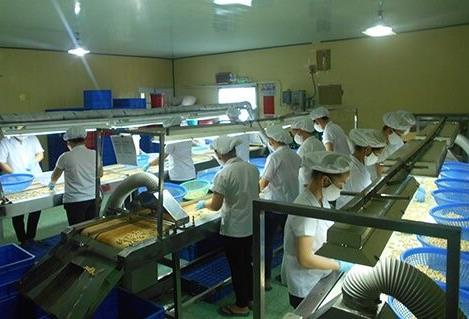Global supply chain at risk of disruption as Việt Nam’s African suppliers of raw cashew play truant
The cashew industry is at risk of disruption since raw nut exporters in West Africa are not fulfilling their contracts with local firms.

The cashew industry is at risk of disruption since raw nut exporters in West Africa are not fulfilling their contracts with local firms, according to the Việt Nam Cashew Association (Vinacas).
Speaking to the press in HCM City on Friday, Nguyễn Minh Họa, Vinacas’s vice chairman, said Việt Nam has been the world’s largest processed cashew exporter for long, but is heavily reliant on cashew imports since local supply only meets 10 per cent of processors’ needs.
West Africa, which accounts for 70 per cent of their imports, has been a reliable supplier for long, but following sharp fluctuations in prices recently, some raw cashew exporters in the region (including the Ivory Coast) did not deliver as contracted or failed to send documents to their Vietnamese partners so that they could take delivery of shipments, he said.
He said raw nuts cost US$1,000 - 1,050 per tonne at the time of signing contracts (between mid-February and March), but the price skyrocketed to $1,500-1,050 by May.
Raw nut exporters blamed the price increase on lower output in West Africa due to unfavourable weather and changing raw cashew nut export policies in some countries: such as Ivory Coast temporary suspending exports of raw nuts to support local processors, he said.
Tạ Quang Huyên, chairman and general director of Hoàng Sơn 1 JSC, one of Việt Nam’s leading cashew processors and exporters, said: “This year the company has signed contracts to buy 52,000 tonnes of raw cashew from West Africa but has only received 25,000 tonnes at the contracted price, and would receive half of the rest at higher prices.
“There is a high possibility it would not receive 10,000 - 12,000 tonnes at all.”
According to the International Nut and Dried Fruit Council, raw cashew output in West Africa is forecast to decrease by 7 per cent this year.
A group of raw cashew exporters from Ivory Coast took advantage of this opportunity to delay deliveries and ask Vietnamese firms to pay higher prices even for shipments that were already en route to Việt Nam or deliver lower quality nuts, Sơn said.
He said: “Prices have increased by 40-50 per cent in just one month, something I have never seen in my 22 years in the cashew industry.”
Cao Thúc Uy, CEO of Cao Phát Co., Ltd, said his company imports around 80,000 tonnes of raw cashew nut every year from various countries, with West Africa accounting for the majority.
It has so far received delivery of 70 per cent of the contracted volume this year, he said.
Local cashew firms, after signing a contract to buy raw cashew, immediately sign contracts to sell processed cashew kernels at prices that depend on those of the raw cashew, he said.
So the rapid increase in raw cashew prices in recent times is causing great difficulties for them, with the lower quality this year due to the impact of drought worsening things, he said.
“The company is trying its best to complete cashew export orders, but will not sign new orders considering the shortage of raw materials.
“We have also adjusted processing capacity to about 70 per cent of capacity to preserve workers jobs’ until the end of the year.”
Họa said according to the association’s preliminary statistics, raw nut exporters in West Africa have delivered only less than 50 per cent of contracted volumes.
“If the delivery delays and price manipulation continue, Vietnamese cashew firms would face a shortage of raw cashew for processing from the latter half of Q3 onwards,” he said.
This would risk disruption in the global supply chain since Việt Nam accounts for nearly 80 per cent of cashew exports, he said.
Faced with that situation, Vinacas has written to the Cashew Exporters Association of Ivory Coast, asking the body to remind exporters to implement their cashew sales contracts.
Vinacas urged its members to make every effort to fulfil the contracts they have signed for cashew exports.
If they are unable tomanage to procure adequate raw cashew, they need to communicate the issue to their buyers so that they understand the situation and come up with solutions, it said.
It said it would gather information and create a blacklist of defaulting raw cashew exporters to warn Vietnamese businesses to stay away from them.
Exporters who deliberately default on contracts would face lawsuits, it promised.
Bạch Khánh Nhựt, Vinacas’s permanent vice chairman, said the association has established a working group to work with relevant agencies to resolve the issue.
To maintain its position as the world's largest cashew exporter and reduce its dependence on imported raw cashew, Nhựt said the Government and localities should take measures to expand domestic cultivation and develop cashew varieties with higher productivity and quality.
According to the Ministry of Agriculture and Rural Development, Việt Nam earned $1.55 billion from cashew exports in the first five months of the year, a year-on-year increase of 19.3 per cent. — VNS





